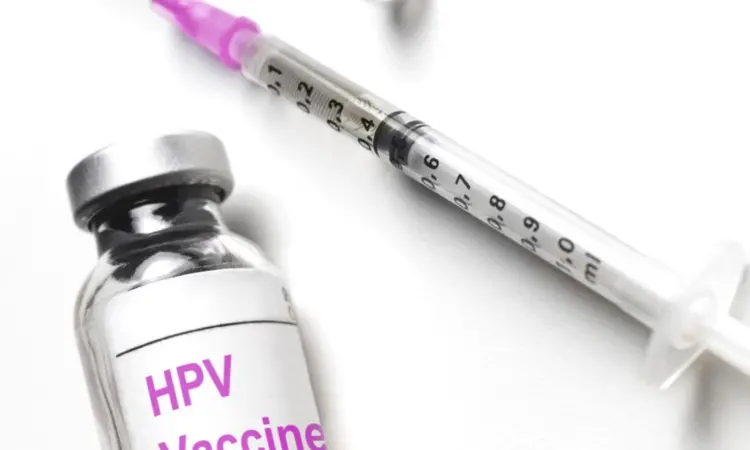- Home
- Medical news & Guidelines
- Anesthesiology
- Cardiology and CTVS
- Critical Care
- Dentistry
- Dermatology
- Diabetes and Endocrinology
- ENT
- Gastroenterology
- Medicine
- Nephrology
- Neurology
- Obstretics-Gynaecology
- Oncology
- Ophthalmology
- Orthopaedics
- Pediatrics-Neonatology
- Psychiatry
- Pulmonology
- Radiology
- Surgery
- Urology
- Laboratory Medicine
- Diet
- Nursing
- Paramedical
- Physiotherapy
- Health news
- Fact Check
- Bone Health Fact Check
- Brain Health Fact Check
- Cancer Related Fact Check
- Child Care Fact Check
- Dental and oral health fact check
- Diabetes and metabolic health fact check
- Diet and Nutrition Fact Check
- Eye and ENT Care Fact Check
- Fitness fact check
- Gut health fact check
- Heart health fact check
- Kidney health fact check
- Medical education fact check
- Men's health fact check
- Respiratory fact check
- Skin and hair care fact check
- Vaccine and Immunization fact check
- Women's health fact check
- AYUSH
- State News
- Andaman and Nicobar Islands
- Andhra Pradesh
- Arunachal Pradesh
- Assam
- Bihar
- Chandigarh
- Chattisgarh
- Dadra and Nagar Haveli
- Daman and Diu
- Delhi
- Goa
- Gujarat
- Haryana
- Himachal Pradesh
- Jammu & Kashmir
- Jharkhand
- Karnataka
- Kerala
- Ladakh
- Lakshadweep
- Madhya Pradesh
- Maharashtra
- Manipur
- Meghalaya
- Mizoram
- Nagaland
- Odisha
- Puducherry
- Punjab
- Rajasthan
- Sikkim
- Tamil Nadu
- Telangana
- Tripura
- Uttar Pradesh
- Uttrakhand
- West Bengal
- Medical Education
- Industry
HPV vaccination not associated with verruca Vulgaris resolution in young patients: Study

New York: The human papillomavirus (HPV) vaccination does not expedite the clearance of verruca Vulgaris (VV) in young patients, a recent study has found. The findings of which are published in the Journal of the American Academy of Dermatology.
The retrospective cohort study, the researchers say, is the first to include an unvaccinated group to control for the natural history of VV.
Verruca Vulgaris is a common, being neoplasms of the skin caused by HPV. It is a leading indication for dermatology visits but its treatment remains challenging. HPV types 1, 2, and 4 which are not covered by HPV vaccines are the cause of VV. Recent studies have shown HPV vaccination to resolve VV, but do not consider that most people clear VV spontaneously.
Against the above background, Rachel C. Blasiak, Division of Dermatology, Jacobi Medical Center, Bronx, New York, and colleagues addressed the question of whether HPV vaccination is associated with VV resolution.
The researchers identified patients aged 9 to 21 years diagnosed with VV by a dermatologist at Montefiore Medical Center between January 1, 2014, and August 1, 2019.
Disease outcome was defined as a decrease in VV number, defined as complete response (CR; 100%), partial response (PR; 50%-99%), or no response (NR; < 49%).
Patients were stratified by vaccination status into 1 of 3 patient groups. Unvaccinated patients were defined as having no record of HPV vaccination or whose first vaccination came after the last VV follow-up visit. Vaccinated-before-diagnosis patients had at least 1 HPV vaccination prior to VV diagnosis and no doses during VV follow-up. Vaccinated-during-follow-up patients had at least 1 HPV vaccination during VV follow-up.
336 met the inclusion criteria of 2154 identified patients. Vaccination during follow-up was completed in 14% of patients, while 39% were vaccinated before diagnosis and 47% were unvaccinated.
Of 2154 patients identified, 336 met inclusion criteria. On average, patients were 13 years old, had 3 VV at the time of diagnosis, and were followed for 13 months. In the vaccinated-during-follow-up and vaccinated-before-diagnosis groups, 39.67% and 26.72%, respectively, received the 9-valent vaccine; 45.25% and 58.78%, respectively, received the quadrivalent vaccine; and 15.08% and 14.50%, respectively, received both. Rates of loss to follow-up differed: 45.83% in unvaccinated, 46.96% in vaccinated-before-diagnosis, and 11.11% in vaccinated-during-follow-up groups, possibly resulting in study exclusion. There were no differences in other treatment modalities between groups.
Key findings of the study include:
- Compared to the unvaccinated group (CR, 52.22%), the vaccinated-during-follow-up (CR, 54.17%) and vaccinated-before-diagnosis groups (CR, 52.67%) did not demonstrate higher VV resolution rates.
- Resolution rates also did not vary between unvaccinated (CR, 52.22%) and vaccinated (CR, 53.63%) patients.
- When stratified by vaccine type given, therapeutic outcomes did not significantly vary except in those receiving both vaccine types during follow-up, which showed significantly lower VV resolution (CR, 25.00%).
The researchers concluded, "we did not detect increased VV clearance among vaccinated patients, which may be for several reasons. Our study's long follow-up provided time for natural resolution of VV in all groups, as VV can clear within 1 year in half of the children."
Reference:
The study titled, "Vaccination against human papillomavirus is not associated with resolution of verruca vulgaris in immunocompetent 9- to 21-year olds," is published in the Journal of the American Academy of Dermatology.
DOI: https://www.jaad.org/article/S0190-9622(21)02344-6/fulltext
Dr Kamal Kant Kohli-MBBS, DTCD- a chest specialist with more than 30 years of practice and a flair for writing clinical articles, Dr Kamal Kant Kohli joined Medical Dialogues as a Chief Editor of Medical News. Besides writing articles, as an editor, he proofreads and verifies all the medical content published on Medical Dialogues including those coming from journals, studies,medical conferences,guidelines etc. Email: drkohli@medicaldialogues.in. Contact no. 011-43720751


